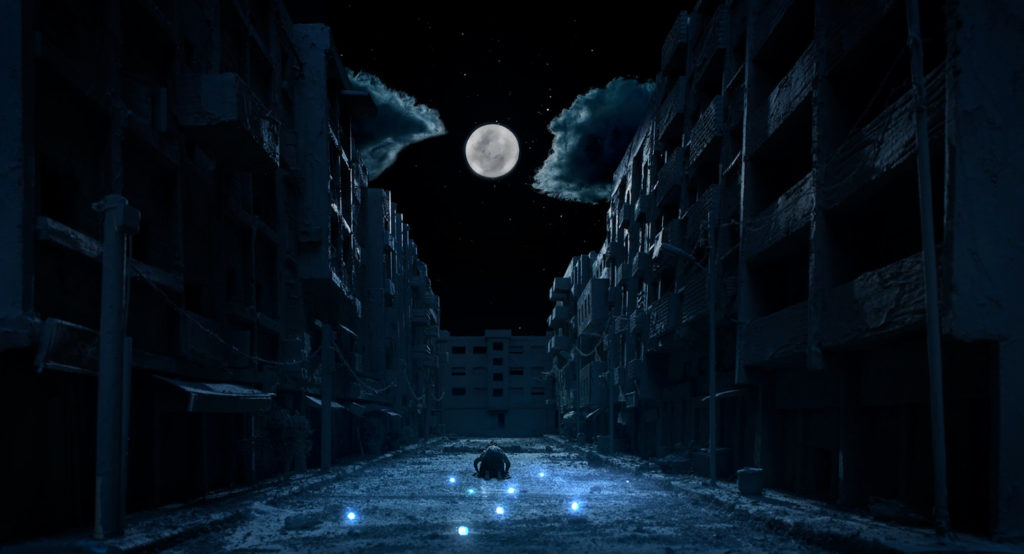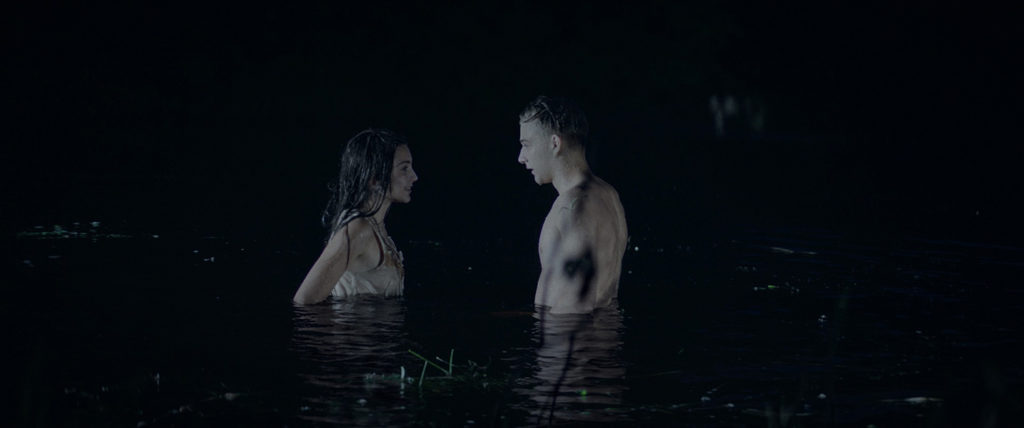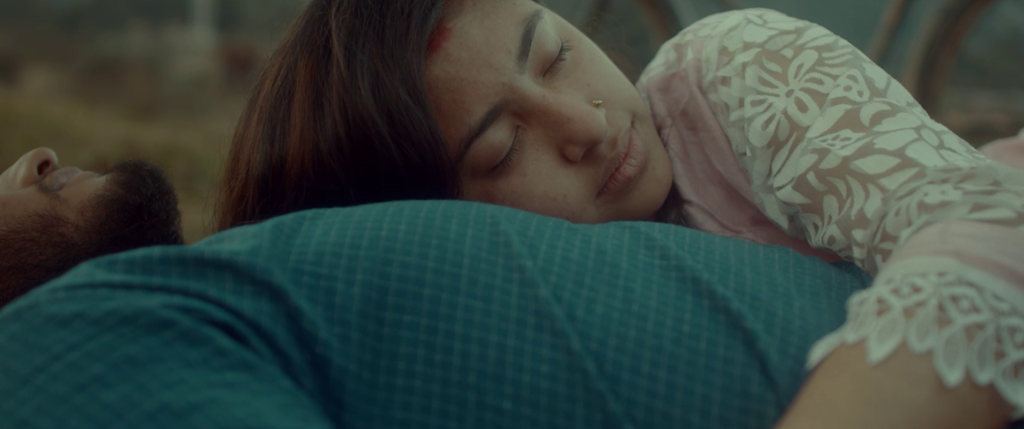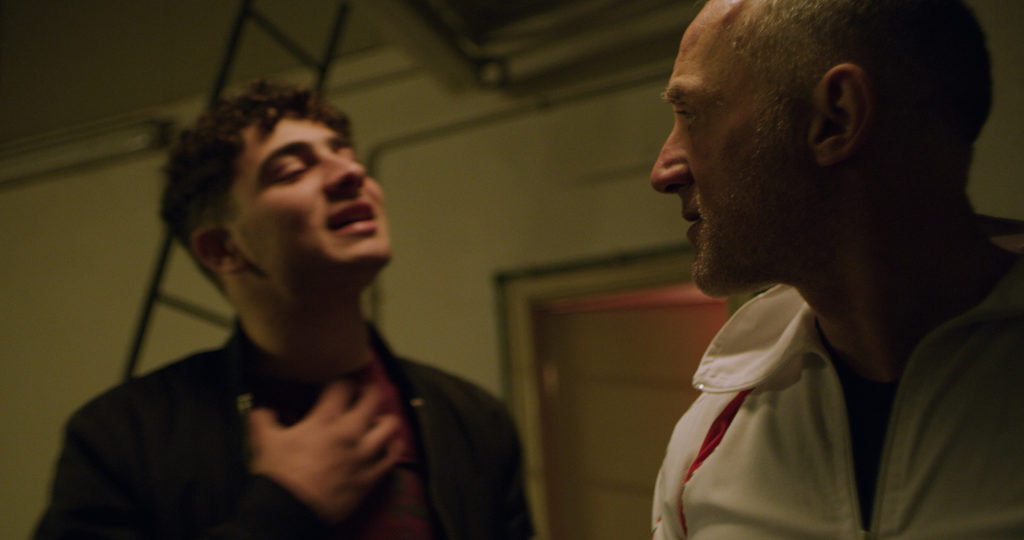Article by Redazione DAMS
Translated by Valerio Copponi
Over the last two years, Torino Film Festival has given new life to the short film category by bringing them back in the official competition in the last edition. This year, they were at the centre of an interesting novelty: each of the twelve films selected by Daniele De Cicco has accompanied one of the feature films in competition before their respective screenings during the days of the festival. A signal of recognition and respect towards an increasingly popular practice in Italy, which has its core in the Turinese festival.
“LIBERTY” BY JOHANNA RÓŻNIAK
A group of youngsters fight for their ideals: an unacceptable action to the society which dominates the dystopian future in which the Polish director’s short film takes place.
Kuba, a young member of the opposition group, gets arrested and finds himself inside a super high-tech prison from which he could never escape, were it not for the help of his father, an important politician. The increasingly stringent limitations imposed on young people, the abuse of power by law enforcement, the technology able to violate any semblance of privacy, the recommendation: all these current themes are analysed perfectly over 14 minutes of terrifying reality.
“NIGHT” BY AHMAD SALEH
Starry and deadly night, a merciful goddess who, like a mother, puts to sleep her children, exhausted by the bombs, by the dust and by the unrelenting pain. A woman rebels against the sweet lullaby, lets out a desperate cry, an appeal of hope to find her young daughter, lifeless, buried under the rubble: what can the Night do but bring peace to her soul, as well? Palestinian director Ahmad Saleh, in this grueling short film, talks about the infamy of war, which forces men to accept their departure peacefully, as the only solution to rid themselves of the constant threat of the shootings and violence.

“LA ÚLTIMA PIEZA DEL PUZZLE” BY RICARDO MUÑOZ
Freedom, continuously evoked by the words on the poster: “PUEBLO SATISFECHO, PUEBLO LIBRE” (“satisfied People, free People”), and its denial, which can be caused by something as simple as reacting to law enforcement authorities, are at the core of the short film by the Venezuelan director. By narrating the simple story of citizen Albertini, who is always missing one piece to complete his puzzles, Ricardo Muñoz lets out a cry of rebellion against the main totalitarian regimes which have dominated numerous countries and continue to do so.
“MAVKA” BY ANASTASIA LEDKOVA
The short film by Anastasia Ledkova is an exquisite, dream-like look at a family tragedy. The death of a woman might be the right time for her son and husband to start a new life. The two of them have different views on the idea of moving, but all that is overshadowed when the son finds a sweet and mysterious girl, concussed, on the bank of a river. The unknown girl wins over the two protagonists with her elegance and innocence, behind which hides a terrible truth that will hit them both hard.

“BACKYARD CAMPING” BY MOR HANAY
A peaceful and pleasant night under the stars seems to be the best way to resolve, although temporarily, the numerous family problems that the protagonist couple have and are aware of. The backyard is the setting, the camping tent becomes a fortress, but the desired resolution never comes, because of a surreal thief and an unbeatable tree.
“RENDEZ-VOUS” BY ROSHANAK AJAMIAN
Baran and Navid are a young Iranian couple going through a crisis. Baran intends to end the relationship as she is in love with her husband’s sister. The shock is painful, especially considering that they have recently moved to Canada, and Navid could have never predicted the end of the relationship. The director chooses to alternate between the two on a date and fragments of Baran crying desperately in the car, aware of the suffering that is about to come.
“LA CATTIVA NOVELLA” BY FULVIO RISULEO
This animated short by Fulvio Risuleo offers an elaborate meditation on the relationship with death, religion, and the future of human relationships in the new world that is moving forward.
The film is divided into three acts, each accompanied by three songs by singer-songwriter Mirko Mancini (aka Mirkoeilcane, ed.). Although the musician’s voice is fundamental to hold the metaphorical reflection together, the metaphysical content which accompanies the descent of Jesus on Earth is completely overshadowed by the visual plotline featured in the film’s mise-en-scène. The three tones corresponding to the different acts of the short film are extremely effective: the first act, dedicated to the Black Angel, is white and cold; the second act, containing the preparation for the descent, is black and gloomy; the last act, which chronicles the old Giovanni’s funeral, is colourful and warm.
“JUNKO” BY MINSHO LIMBU
The story of Junko is the story of many Nepalese new brides, forced to live far away from their husbands who leave for India looking for a job.
Minsho Limbu decides to chronicle, with echoes of Beckett, the young woman’s wait for her Godot, who may never return home.
The directing is elegant and subtle, the camera lingers on Junko’s microcosm, accompanying her in the realisation of her future solitude, as it was for her mother and for the women of previous generations. Limbu studies every shot in detail, as the production design remains essential and functional to what is being told; in this way, the story almost seems to tell itself in front of the lens. The film is an example of great storytelling, it leaves no questions unanswered and chronicles, without pity and sentimentalism, a cross-section of the cultural life in Nepal.

“NEON MEETS ARGON” BY JAMES DOHERTY
The whole problem of life, then, is this: how to break out of one’s own loneliness, how to communicate with others. Cesare Pavese, This Business of Living: Diaries.
Immersed in a blaze of colours, an Hephaestus with an Irish accent accepts a young apprentice into his peculiar neon sign factory. Alienated by the community and unfamiliar with social relations because of his prolonged isolation, the old craftsman’s neon light turns on thanks to the arrival of a friendly individual who bursts into his dull daily routine. The two lost souls struggle to communicate, but the barriers are broken down by the need of finding themselves through one another.
“BABATOURA” BY GUILLAUME COLLIN
Making the most of a frantic style of directing which chases after the characters’ dialogues through fast-paced, back-and-forth exchanges, the short film by Guillaume Collin describes the delicate balance of a Canadian family, gathered for dinner.
Many secrets and fears grip the heart of Benoit, worried that his family will not accept the illegitimate son which his partner carries in her womb. The mise-en-scene helps to understand the nature of each of the diners seated around the table, and simultaneously displays their reaction to the shocking news that destroys the principles of a traditional family, thus measuring the extent of their love for one another.
“LA NOTTE BRUCIA” BY ANGELICA GALLO
Riding the (overlong) wave of crime stories set in the outskirts of Rome, a theme and a leitmotif which have oversaturated Italian cinema in the last few years, director Angelica Gallo condemns an environment in which teenagers find no way to emerge as individuals and as members of society, other than associating themselves with criminals. The presence of Marcello Fonte e Aniello Arena enriches a genre short film which depicts teenagers living on the street like stray dogs, working in packs to survive, but ready to betray one another in the name of a god who knows no morals: money.

“AIN’T NO MERCY FOR RABBITS” DI ALIZA BRUGGER
Director Aliza Brugger presents in competition an all-female western film that revolutionises the genre as it has traditionally been imagined, by reinventing the woman’s role: no more a defenseless creature, incapable of providing for herself in an arid and treacherous environment, like that of the desert. Indeed, the small Ronan lives with her ailing grandmother in a hostile environment, far away from any kind of civilization and from natural resources. They are surrounded by a rocky horizon, but no cowboy comes galloping to their rescue. “You gonna be the wolf or the rabbit?”: this is the question that runs through the mind of the young protagonist who, inspired by her grandmother’s teachings, fights against the fear of not being able to survive. Knowing that she can only rely on her abilities, the young Ronan learns to ride, a symbol of independence and freedom.

